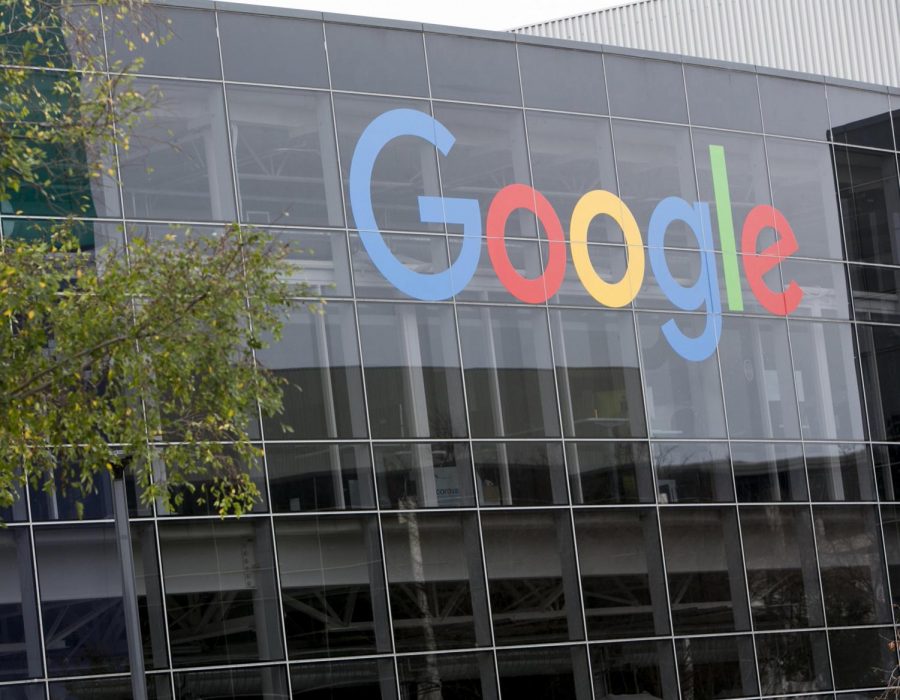Google Clips raises privacy concerns
Opinion columnist Sam King discusses Google’s recently announced hands-free camera, the Google Clips, and the privacy concerns related to the new technology.
Oct 30, 2017
A couple weeks ago, Google launched a massive hardware push and showcased a variety of new products. Some of these products included the Pixel 2, Google Home Mini and the Pixelbook. Most of these products were well received and seamlessly added to Google’s line up of products.
Well, except for one new product.
Google’s brand-new, hands-free camera known as the Google Clips was met with some controversy. It’s understandable why people didn’t like the product, though, given how strange it is.
The gist of the Google Clips is that it takes pictures without anyone pressing a button. It fits in the palm of your hand and can be clipped to furniture or other solid objects. Once it is turned on, the camera will begin to “smartly” take pictures of you and anyone else in the room.
Google claims it has an artificial intelligence (AI) that makes the camera work. Over time, this AI will better understand the right opportunities to take a photo or short video based on facial recognition and movement.
This way, the smart camera will only take pictures when a good photo opportunity presents itself, thus allowing you to put your phone away and not have to worry about taking a picture as the Google Clips takes pictures for you.
In my opinion, as well as many others, this sounds kind of creepy. An always-on camera brings back the eerie vibes of the Google Glass but may or may not be better than the Google Glass (SiliconBeat).
The camera does light up when it’s active, unlike the Google Glass. It also has a phone app linked to the camera so the owner can go through and delete photos and videos they don’t want.
That sounds nice, but something that still rubbed me the wrong way was how easy it would be for Google to profit off this. A camera that’s $250 is going to make Google money, yet that’s not the real profit I’m talking about.
Google, for better or for worse, takes our search history information, as well as other information about us online, and sells it to advertisers. According to an article from Siliconvalley.com, “With a camera they can see what you’re wearing or what brand of soft drink you drink.”
In this way, the Google Clips would be perfect for advertisers. They would get an intimate look into our lives like they never have had before.
Sound creepy yet?
Personally, speaking for myself, I find the whole concept pretty creepy. I don’t have kids, and I’m also not as concerned about online privacy as some; however, this is a different case.
Google listening to me or checking my online search history doesn’t bother me too much. They can only learn so much from that information.
If they had pictures of me, though, they could learn a lot more about me. They could learn what brands I buy, how my house looks, my physical appearance, my hobbies and so much more.
Now to be fair, the Google Clips does help us “live in the moment” more. Instead of having to take out your phone and miss out on a photo, the Google Clips will simply take a picture for you. It’s great for parents trying to capture moments with their kids, as well (The Verge).
However, an AI taking pictures of my kids whenever it decides is the right moment wouldn’t make me happy if I were a parent. I think most anyone would prefer their family, friends or themselves to take pictures of their kids and not an AI.
If anyone is still thinking about getting the product, I would take a second to mull it over. Go ahead and buy that camera if you’re completely sure you want it and aren’t bothered by it.
I firmly believe that it’s a product that people really should think about. It’s not something to buy on a whim.
It is important to note that the camera has not yet been released, and Google could still make some changes to it. Still, with a price tag of $250 and all these other privacy concerns, it’s hard to imagine that this product will do well.
Only time will tell if this camera flops or finds a home in our living rooms.

















